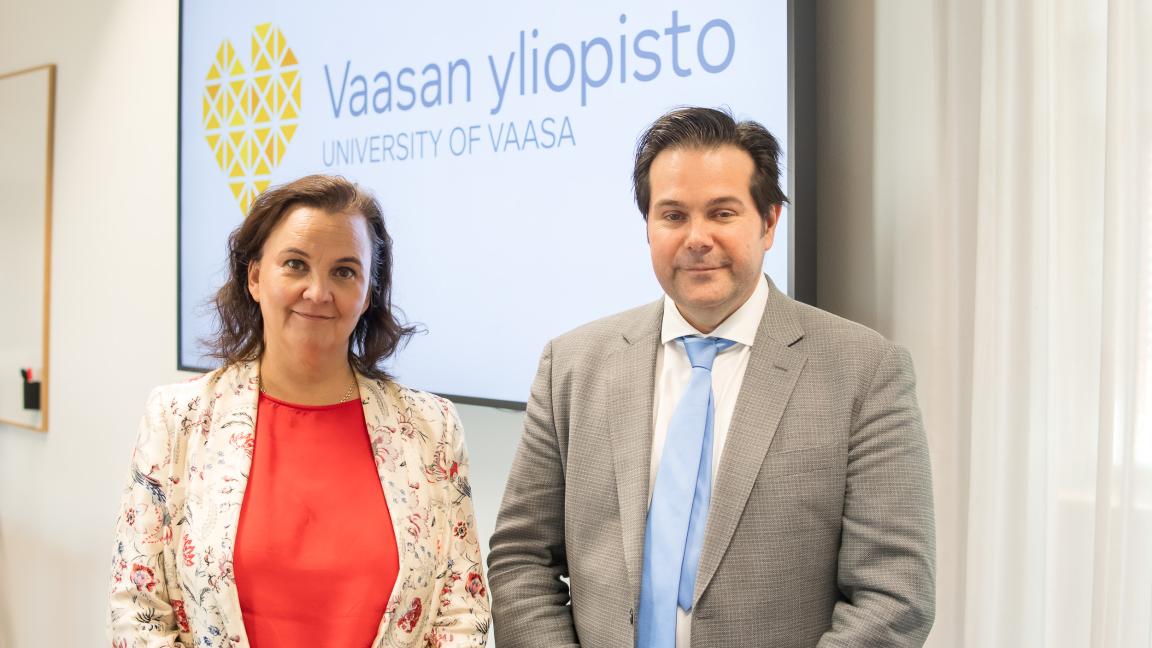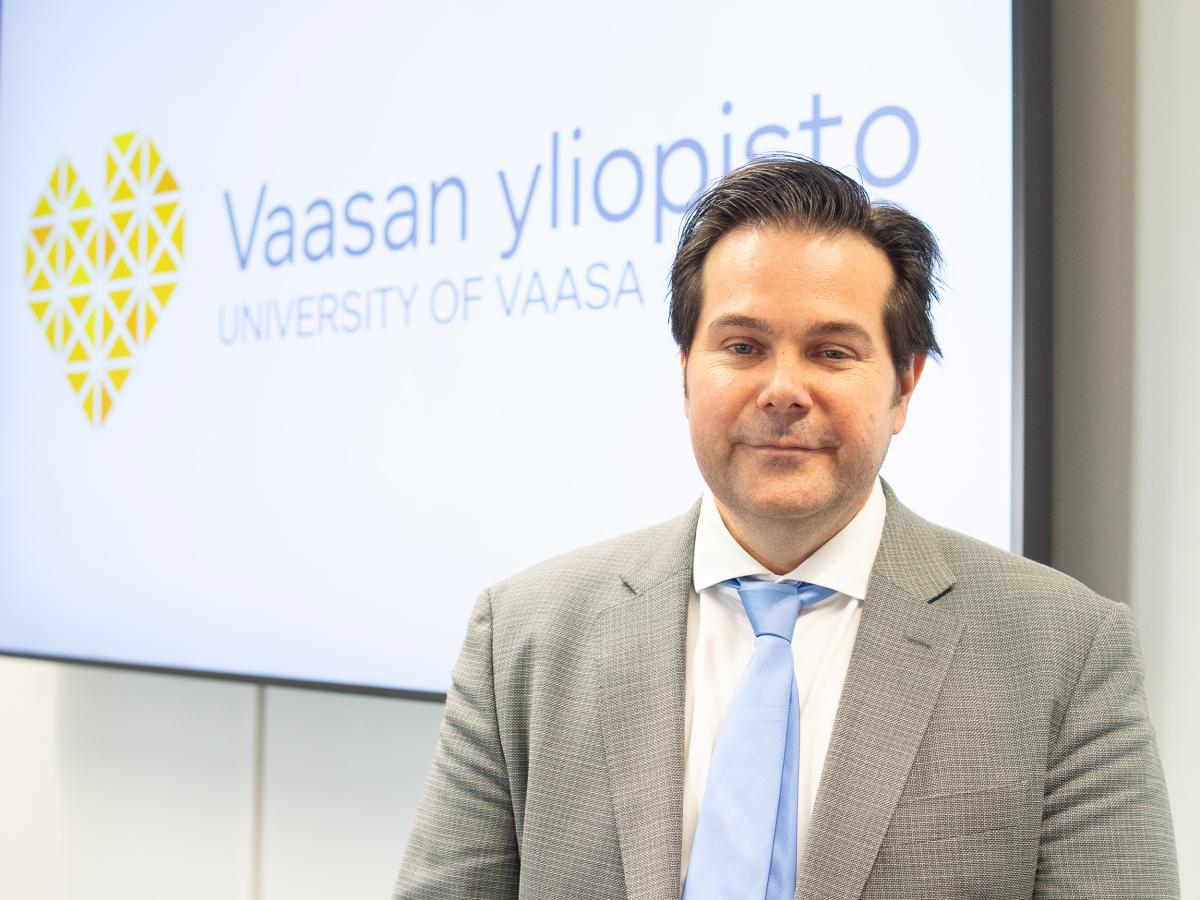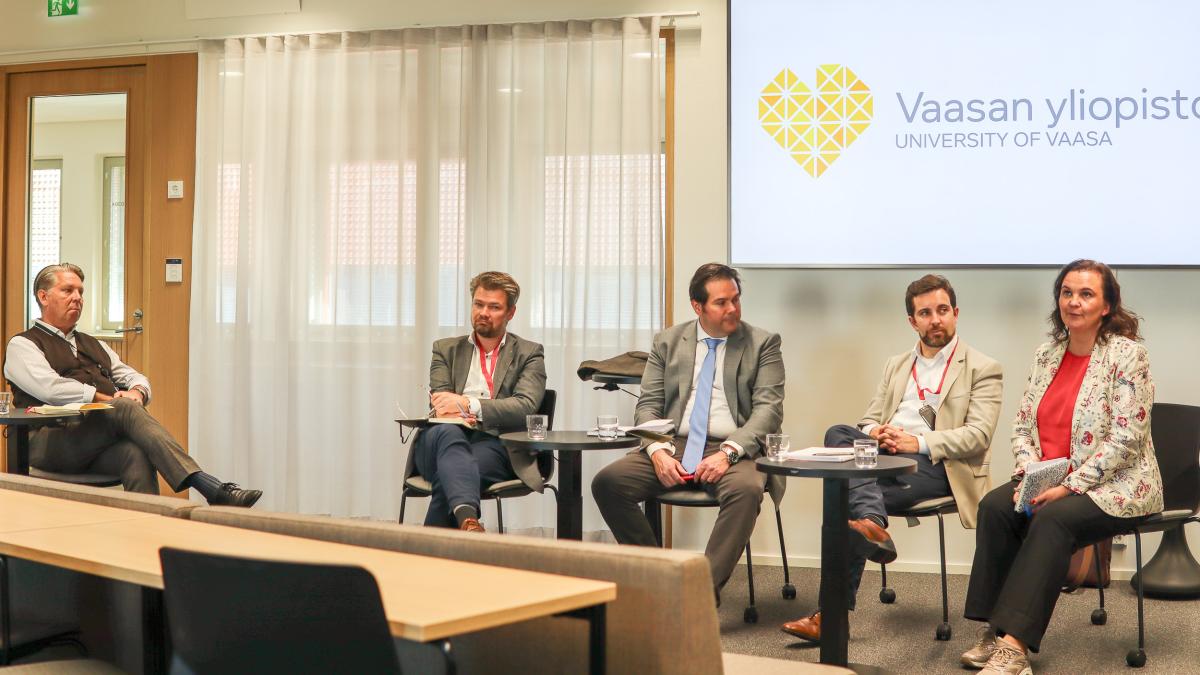Rubén Arcos joins the University of Vaasa as visiting professor on hybrid threats and intelligence
During his two-year term at the University of Vaasa, visiting professor Rubén Arcos will focus on research and academic collaboration. His work may also include student mentoring and lecturing.
Arcos says that what drew his interest was the University of Vaasa’s comprehensive and multidisciplinary approach to security.
– I think the concept of comprehensive approach to security of the University of Vaasa and new platform for preparedness and resilience are very important, Arcos says. – I think also that we need to do more on the intersection of all these fields related to security that includes also business, the public sector and other stakeholders.
Finland has a strong tradition in comprehensive security
Arcos is particularly interested in intelligence analysis, assessments and anticipatory systems that help decision-makers prepare for hybrid threats, disinformation and other security challenges.
When asked what Finland should now be particularly concerned about regarding hybrid threats, he highlighted Finland’s long tradition of comprehensive security thinking as an important asset.
– I think that Finland has been one of the countries that have since long time ago been able to develop frameworks and ways of understanding security from different points of view. The establishment of Hybrid COE is a very good example of that, he says.
– After the invasion of Ukraine by the Russian Federation, this has become a very urgent issue. Finland is a member of NATO, which is very important, and to be well aligned with the other countries in the alliance. At the same time, many countries face the risk of their public opinions being polarised and misled by actors like Russia or China. The possibility of sliding towards authoritarianism is worrying for European democracies.
Wide international experience
Arcos is Associate Professor at the School of Communication Sciences at the University Rey Juan Carlos in Madrid, where he is also a member of the Cyberimaginario research group on Communication and Digital Culture. In addition, he is a visiting professor of European intelligence analysis at the College of Europe. Arcos chairs the Intelligence Studies Section of the International Studies Association and has contributed to the work of the European Centre of Excellence for Countering Hybrid Threats (Hybrid CoE). He has acted as a consultant for European Commission projects, co-led major research initiatives such as the EU-HYBNET project, and published extensively, including the Routledge Handbook of Disinformation and National Security.
Arcos calls for anticipatory systems to counter hybrid threats
Last week, Arcos delivered a guest lecture titled Navigating Hybrid Threats: Safeguarding Critical Infrastructure in the Times of Polycrises at the University of Vaasa. In his lecture, he stressed the importance of developing anticipatory systems to address hybrid threats and disinformation. Such systems, he explained, should not only provide strategic warnings but also help societies prepare for emerging risks rather than constantly reacting to events after they occur.
– I advocate for making greater use of anticipation and an anticipatory approach, Arcos said. – Without it, we are constantly one step behind. We focus on fact-checking and debunking, but we also need an anticipatory function to inform and communicate effectively.
Arcos emphasised the need for a comprehensive approach involving both state and non-state actors, better information literacy, and the strengthening of critical thinking skills. Public opinion and democratic processes, he noted, are particularly vulnerable to manipulation, which is why institutions must work together to present information clearly, transparently, and in ways that build resilience across society.
The panel discussion highlights the risks of authoritarian regimes
After Rubén Arcos’s lecture at the University of Vaasa, a panel discussion facilitated by research director Petri Uusikylä elaborated the hybrid threat analysis and importance of anticipatory approach. The panellists were Dr Hanna Smith, Professor of Practice in resilience research at the University of Vaasa, Rubén Arcos, Director Axel Hagelstam from the Finnish National Emergency Supply Agency (NESA) and Director Maxime Lebrun from Hybrid CoE.
Smith noted that the growing number of hybrid threat activities actually reflects the internal weakening of authoritarian regimes such as Russia:
– I would say the reason why we see more hybrid threat activities in our space is that these regimes are starting to get weaker internally. When they feel threatened, they tighten internal control, rally people around the flag, blame external actors, and test activities beyond their borders to prepare for worst-case scenarios.
According to her, this nervousness can have dangerous consequences.
– The more desperate these regimes become, the greater the risk that they will resort to desperate measures, and that is where the real danger lies.
- Join the mailing list of the Preparedness and Resilience Research Platform.


